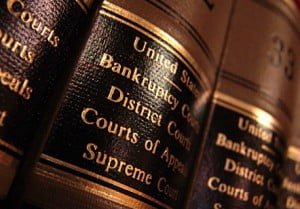
Chapter 7 bankruptcy – A form of personal bankruptcy that will result in the discharge of all or most of the debtor’s unsecured debt. Some companies who do not want to continue operating choose to file Chapter 7 bankruptcy also and liquidate their assets so that they can pay their creditors.
Chapter 13 bankruptcy – A form of personal bankruptcy that allows individual debtors and married couples to repay their debts over a period of 3 to 5 years. Businesses are not allowed to file this type of bankruptcy.
Chapter 11 bankruptcy – A form of business bankruptcy, that allows a business to restructure their debts and repay them under negotiated terms with their creditors. It also allows the corporate debtor to sever many types of employment contracts and other agreements that may hinder the company financially.
Meeting of the Creditors (aka 341 meeting) – This is the meeting that the debtor has with the bankruptcy trustee and any creditors who have questions about the bankruptcy case. It is rare that creditors actually show up to this meeting.
Transfer – A movement of assets from the debtor to another person or entity. For example, if a debtor puts their house in their parents’ name right before the bankruptcy, it is considered a transfer. If a transfer is made right before the bankruptcy is filed, it may be disallowed by the bankruptcy trustee.
Gift – A charitable contribution made either to outsiders such as religious and non-profit organizations or to insiders such as family and friends. Like transfers if the gift is made right before the bankruptcy filing, it may be disallowed by the bankruptcy court.